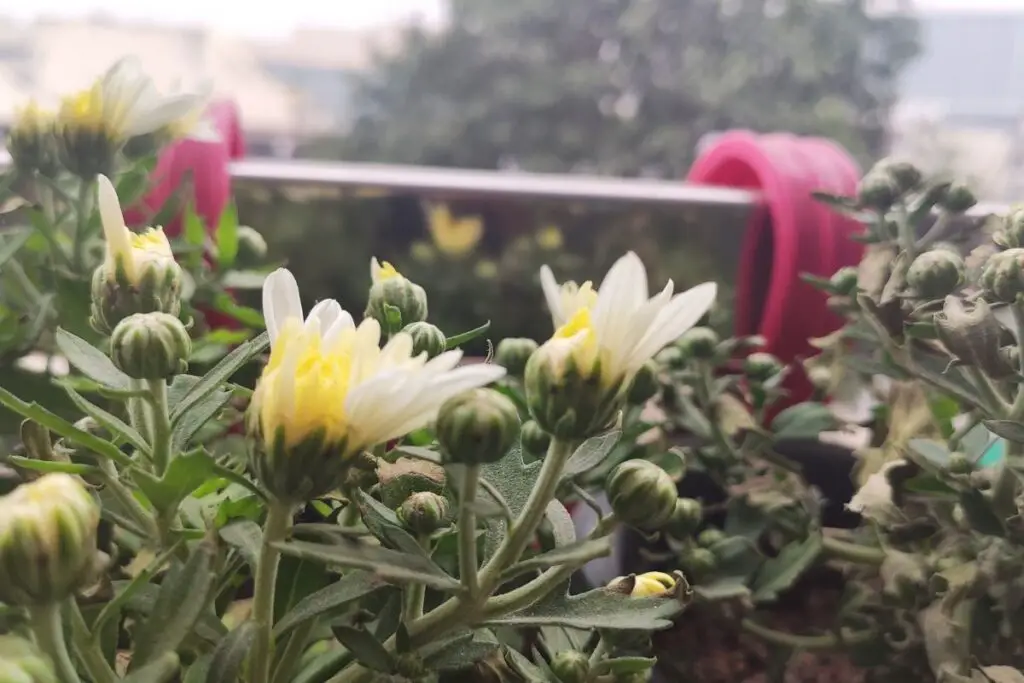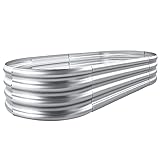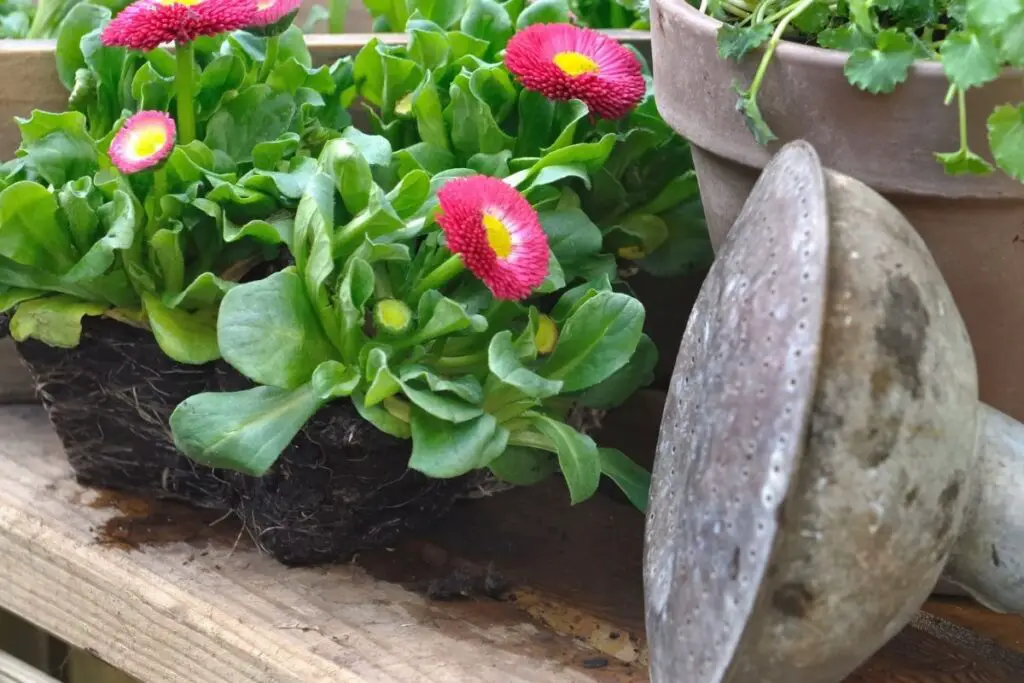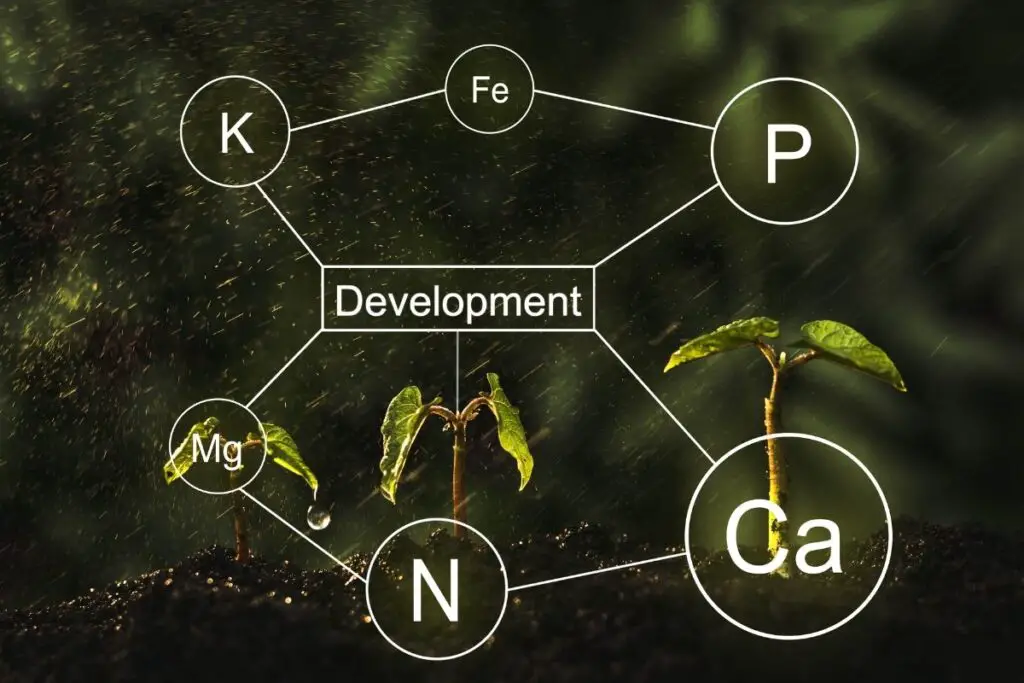Daisies are plants known for their beautiful blooms, and if you have planted daisies in your garden, you expect them to make your garden look beautiful in the flowering season.
This is why you have planted daisies in your garden, isn’t it? If you take care of your plant throughout the year, you can expect wonderful white blooms in the spring.
If your daisies are not blooming as you expected them to be, it means there is some problem with your plant. So, in this article we shall find out why are your daisies not blooming and how can you fix the same.
Inadequate lighting, too much fertilizer, and the plant’s age are the primary factors due to which your daisies might not be blooming. Please provide them with bright sunlight, a light dose of fertilizer, and water them adequately so that the plant can flower at its full potential.
Below are the reasons listed that can hinder your plant from blooming during the flowering season-
- Inadequate sunlight
- Improper watering
- Cold or frost injury
- Drought
- Improper trimming or pruning
- Imbalance of nutrients
- Hot weather condition
Let us discuss in detail all the above-listed reasons so that you can make sure that your daisies have the most beautiful blooms in the flowering season.

Inadequate sunlight
Daisies are sun-loving plants, and they like to stay under the sun all day in excellent weather conditions. They thrive on bright sunlight, which is one of the most important reasons for their beautiful flowers.
If your daisies are not getting enough sunlight throughout the day, they might not correctly bloom in the flowering season. However, they might show average growth even in less bright conditions, but flowering and blooming can be a problem.
Make sure that you have planted your daisies in the brightest spot in your garden and where the sunlight reaches easily throughout the day.
If your daisies are growing under the shed of a tree or another plant, there are chances that they will not receive sunlight throughout the day.
Therefore, if your plant is not flowering despite providing all the nutrients, you will need to check the sunlight. Sunlight is the most crucial factor for your daisies to bloom because, in full sunlight, only the plant can perform its functions at optimum levels, which enables it to bloom at the right time.
Also read: How Much Light Do Daisies Need? (Daisy Light Requirements)
Improper watering
Improper watering is another reason due to which your daisies might not bloom.
It can either be underwatering or overwatering, due to which your daisies are not blooming. Both these conditions can stop your plant from thriving and blooming as well.
Also read: How Much Water Do Daisies Need? (Daisy Water Requirements)
Underwatering
If you are not watering your daisies regularly and you have forgotten to water them for weeks, they might show signs of being underwatered.
If the plant does not receive enough water to perform its function, it will not synthesize its food. It can remain undernourished due to that, and finally, for lack of moisture, the leaves and buds will droop.
It will stop blooming due to a lack of water, and the flowers and leaves will start to dry out. In this case, you will need to dispense it with proper moisture so that the plant can revive itself.
Looking for gardening supplies? We have tested 100's of products before recommending them to you guys. Check out our best pick below:
| Image | Gardening Supplies | Best Price? |
|---|---|---|
 Top
Top Top
Top | Raised Garden Bed Kit | Check On Amazon |
 | XLUX Soil Moisture Meter, Plant Water Monitor, Soil Hygrometer Sensor for Gardening, Farming, Indoor and Outdoor Plants, No Batteries Required | No Results |
 Top
Top Top
Top | 82 Pcs Garden Tools Set and Extra Succulent Tools Set | Check On Amazon |
 | Joeys Garden Expandable Garden Hose with 8 Function Hose Nozzle, Lightweight Anti-Kink Flexible Garden Hoses, Extra Strength Fabric with Double Latex Core, (50 FT, Black) | No Results |
 Top
Top Top
Top | Dual Chamber Compost Tumbler | Check On Amazon |
 Top
Top Top
Top | Sunnyglade Plant Stakes | Check On Amazon |
 Top
Top Top
Top | Organic Cold Pressed Neem Seed Oil | Check On Amazon |
 Top
Top Top
Top | Mighty Mint Gallon :-Insect and Pest Control Peppermint Oil | Check On Amazon |
 Top
Top Top
Top | Scotts DiseaseEx Lawn Fungicide | Check On Amazon |
 Top
Top Top
Top | Jacks Classic 20-20-20 All Purpose Fertilizer | Check On Amazon |
 Top
Top Top
Top | 30,000 Seeds Pollinator Attracting Wildflower Mixture | Check On Amazon |
 Top
Top Top
Top | Survival Vegetable Seeds Garden Kit-Over 16,000 Seeds | Check On Amazon |
Overwatering

Some gardeners mistake watering their plants frequently in the blooming season to make them grow and bloom faster and brighter, but if you are watering your daisies too frequently to make them bloom and grow fast, then it might be overwatered.
So, if you are wondering that even after frequently watering, why the plant is not growing fast enough and not flowering, you need to check if it is sitting on the water already for a long time.
If you find that the soil is very damp and moist for quite a few days, then you need to stop watering your plant to revive it. Overwatering can cause root rot, and therefore the plant cannot absorb the nutrients from the soil, and it starts drooping. Hence your plant will not be in proper health to bear flowers.
It is easier to cope with underwatering, but overwatering can be severe, so identifying this problem in an early stage can save your plant. If this problem is not identified early, you might even have to transplant your daisies.
But if the condition is not so severe, you can just stop watering and wait for it to recover under the sun.
Also read: Why Are My Daisies Drooping? (Causes+How To Fix)
Cold or frost injury
If you live where the temperatures can drop below freezing point in winters, your disease might suffer from cold and frost.
Frost can damage the leaves and buds of your daisies. So, if you are thinking, why are your daisies not flowering in such weather conditions? They are being damaged by cold and frost.
If the flowering buds of daisies are damaged due to frost, they will not bloom when the time comes because the damage done by frost is not repairable.
You will need to prune the dead heads of the buds and flowers to enhance their growth hormone and make them bloom again.
If the conditions are harsh and cold at your place, you can also make a small greenhouse for the disease in your garden so that the frost does not damage it.
Drought
If it is hot and dry weather and there is not enough moisture around for a few days, then your disease might be in trouble. Conditions of drought are not suitable for your Daisy plant.
Daisies like to thrive in humid conditions, and the ideal humidity level for Daisy is 60%. But if the conditions are arid and hot, the flower buds can drop off so your plant will not bloom.
Therefore you need to make sure your plant is being fed with enough water, and the humidity levels in your garden are also favorable for your daisies. Only then will you get beautiful blooms in the flowering season from your daisies.
Improper trimming and pruning
If you have had daisies in your garden for quite some time, then it will need some maintenance. To make your daisies look full and lush, you will need some pruning.
Trimming and pruning the deadheads is essential for your plant to focus more on the new buds to bloom during the season.
But after pruning, if you wonder why the plant is not flowering despite providing it all the favorable conditions, you need to check whether you have pruned the young flower buds.
You need to be careful while trimming and pruning your daisies so that you don’t cut off the young flower buds of your plant. Pruning your plants at the wrong time can take away flower buds for next season’s blossoms.
So if you are pruning your plants before the flowering season, you need to be careful and make sure that you don’t prune the young flower buds.
Nutrient imbalance

Another reason for your disease, not flowering, can be a nutrient imbalance. This nutrient imbalance can be either due to over-fertilizing your plant or under-fertilizing.
Overfertilizing
Many gardeners make the mistake of fertilizing their plants too much before the blooming season to make them bloom wonderfully. But too much fertilizer Can cause buildup in the soil, and it can also make the soil acidic.
Too much fertilizer damages the roots and causes root burn, and due to this reason, the plant cannot draw nutrients from the soil for the synthesis of its food. Ultimately the plant starts starving, and it is not able to nourish its young flowering buds. Hence the flowers don’t show up in the flowering season.
Daisies need all-purpose fertilizer for optimum growth. ¼ cup of 10:10:10 fertilizer per plant is required for the daisies. If you are using granular fertilizer, you will need to fertilize your daisies once every five or six months.
If you are using liquid fertilizer, you will need to fertilize them once every month as it is dilute and quickly gets absorbed by the plants.
Before the blooming season, you will need to fertilize them with 10:16:10 fertilizer which has more phosphorus because phosphorus is good for the growth of flowers.
Underfertilizing
Your disease might not bloom if you are not fertilizing them at all. If the plant has used up all the nutrients of the soil and the soil has become exhausted, then it will not provide your plant with nutrients, due to which your plant will not grow properly.
If your plant is deprived of nutrients, it is evident that it will not bloom appropriately because its growth is hindered. So an adequate supply of nutrients and fertilizer is necessary for your daisies.
Also read: Do Daisies Need Fertilizer?
Hot weather conditions
Daisies like excellent weather conditions and the optimum temperature for them to thrive is 70-75°F. Since they are sturdy plants, they can tolerate temperatures up to 30°F.
But if you are someone who lives in a state where the weather conditions are hot or more than 75°F, then it might be challenging for your disease to show up with wonderful blooms.
The disease will require excellent weather conditions with bright sunlight before the spring arrives. These kinds of weather conditions help them prepare for their blooms.
You can provide your disease with a temporary shed in the afternoon if the temperature at your place is too hot for your daisy’s liking. The temporary shed will help avoid sunburn, and it will not let the young flower buds die.
Final words
- The daisies love bright sunshine, and therefore adequate sunlight is required for them who have wonderful bright blooms.
- To have showy blooms, your daisies will also require an adequate supply of water.
- You will need to protect your daisies from cold and frost in temperatures below freezing point. A temporary greenhouse will be a good idea.
- Careful trimming and pruning are required so that you don’t harm the young flower buds.
- You need to provide them with proper humidity and moisture and protect them from drought conditions to prevent the flowering buds from dying before the blooming season.
- To avoid sunburn, you will need to protect your daisies from scorching weather conditions and make sure that the young flower buds don’t burn out in the sun before they bloom.
Also read: Are My Daisies Dying? (7 Signs Of A Dying Daisy Plant)
Ref: Wikipedia, Britannica, University Of Florida, Ucanr.edu
